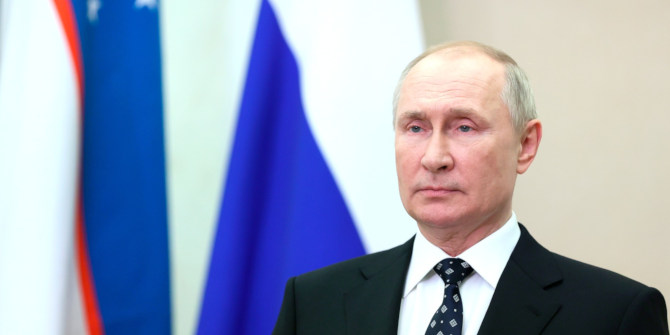In 2019, the EU and Mercosur reached agreement on a trade deal, yet four years later, the deal remains unratified. Carlos Cruz Infante and Roland Benedikter examine the obstacles that continue to block progress toward ratification.
The European Union and the Mercosur trade bloc – Argentina, Brazil, Paraguay and Uruguay – have spent 23 years negotiating a free trade agreement that would create the world’s biggest economic market. In June 2019, the two blocs signed an agreement in principle, however, it remains unratified. The delay in ratification has not gone unnoticed and scepticism around the success of the negotiations seems to dominate the current mood.
In September this year, Santiago Peña, the President of Paraguay, sent the EU an ultimatum to finalise the agreement before 6 December and, consequently, before the current Spanish presidency of the EU ends and before the end of Brazil’s presidency of Mercosur.
The environment
Many factors underlie President Peña’s exasperation. Firstly, the EU’s coherence around environmental concerns, particularly regarding deforestation in the Amazon, has irritated the Brazilian government and its partners. Many Mercosur countries relate to the more positive vision of Jim Skea, the new Chair of the de facto World Climate Council, the Intergovernmental Panel on Climate Change (IPCC). Most of them would like to apply the actions of the UNDP and UNESCO led global initiative “AI for the Planet”, launched in May 2022, which recommends employing Artificial Intelligence on a large scale to mitigate climate deterioration rather than relying primarily on other sustainability measures.
On the other hand, the EU is, much like the United Nations, the UNDP and UNESCO, against protectionism and for more open cooperation on the issue. After the last meeting between the EU and the Community of Latin American and Caribbean States (CELAC) in July 2022, Brazil’s President Lula da Silva reacted to the EU’s latest petition to make environmental cautions more robust by saying, “two strategic partners do not discuss threats – we discuss proposals.” As a consequence, only Uruguay’s conservative president, Luis Lacalle Pou, is still openly pushing for fast ratification of the agreement.
Agriculture
Secondly, the various European agriculture lobbying groups have made it difficult for some of the EU member states’ national parliaments to ratify the agreement. These groups, who represent a large portion of European farmers, perceive the deal as unfair.
They argue that Mercosur’s agricultural products do not meet the EU’s quality and sustainability standards. This might be counterintuitive for some South American countries, whose presidential systems centralise foreign and trading policy decisions, making them more expedited and less basis-democratic – unlike the EU.
New regulations
Thirdly, related to the former two elements, the EU recently adopted three new regulations: the deforestation regulation, rules on corporate sustainability due diligence, and the Carbon Border Adjustment Mechanism. Although some claim these regulations “reduce the pressure on the EU-Mercosur Association Agreement Trade and Sustainable Development Chapter”, improving the prospects for ratification, they could also trigger the opposite effect.
In fact, the deforestation regulation urges EU companies to undertake due diligence over a variety of other commodities whose extraction can be related to deforestation. This is why Argentina, Brazil and Paraguay tagged the deforestation-free measure as protectionist.
On the other hand, the rules on corporate sustainability due diligence mandate EU firms to disregard providers whose standards on workers’ rights and environmental security do not match those of the bloc. Much like the deforestation-free rule, this could discourage Mercosur firms from participating in the supply chains of EU companies. Lastly, the carbon-related mechanism imposes a carbon tax on the worst polluting industries. Iron and steel, for instance, leave Brazil’s exports extremely vulnerable to this new taxation.
Can the agreement still be ratified?
While some analysts believe that ratifying the agreement is still possible, others are more pessimistic. Furthermore, there are doubts regarding the continuity of Mercosur’s trade policy due to divergent visions within the South American bloc arising from differing political and ideological inclinations, which are often changing fast and sometimes in the opposite direction, according to the blocs in charge.
The perspective now is that if the deal goes unratified – and the current window might be one of the last opportunities to ratify it in its agreed form – the EU might risk diluting its international influence. It is unlikely the EU will suffer significantly due to loss of trade, given it already has several important trade agreements signed worldwide. However, a potential failure could set a precedent for the entire Global South, which, according to some analysts, the EU continues to poorly understand.
China and Russia
There are two further risks worth considering. First, there is the risk of the EU losing influence to China and Russia in Latin America. While most Latin Americans appreciate the deep value of the UN and EU’s human-centred agenda, authoritarian China’s impact is centred on fast decisions, huge investments (mostly created artificially by printing Yuan) and the apparent prevalence of sober and calculated pragmatism.
For these reasons, China has become Brazil and Argentina’s leading trade partner outside the region. Uruguay’s President Lacalle Pou has also actively pursued a free trade agreement with China. On top of this, Brazil and Argentina are now among the top 35 countries where China is most influential.
Similarly, Russia is acting as a vital provider of agriculture nitrate-based fertilisers to both countries and is a relevant buyer of South American meat. Moreover Russia’s propaganda in the region has influenced Brazil and Argentina’s stance on international issues, for example their so-called non-alignment in condemning Russia’s invasion of Ukraine. Brazil has also made it clear that it would not arrest Putin if he came to the 2024 Brazil G20 meeting.
China and Russia’s influence in South America could become even greater in the coming years. Through the BRICS group – Brazil, Russia, India, China and South Africa – Brazil’s left-wing president Lula is aiming to consolidate a long tradition of Brazilian leaders seeking a more multipolar world. Likewise, Argentina is likely to join the BRICS in 2024 after doubling its currency-swap line with China this year to lower its dependency on the US dollar.
Internal challenges
The second risk cluster from failing to ratify the EU-Mercosur agreement is the potential for greater fragmentation within the EU. The COVID-19 pandemic and the war in Ukraine have both put EU unity under strain. Failure to agree on a joint position for engagement with Latin America could further undermine the EU’s internal consolidation after Brexit.
In an attempt to move beyond internal divisions over the issue, German Chancellor Olaf Scholz made a solo trip to South America earlier this year. Scholz pitched investment agreements on lithium reserves in Chile and Argentina, as well as deals to produce and import green hydrogen from Chile and Uruguay.
The relative success of these initiatives could lend weight to the idea that EU member states can prosper by pursuing bilateral relationships with countries in Latin America outside of the umbrella of the EU. This is likely to be an illusion and would only strengthen the EU’s competitors. It remains in the mutual interest of both the EU and Mercosur to look beyond the current global political climate and revive their deal.
Note: This article gives the views of the authors, not the position of EUROPP – European Politics and Policy or the London School of Economics. Featured image credit: BUTENKOV ALEKSEI/Shutterstock.com




